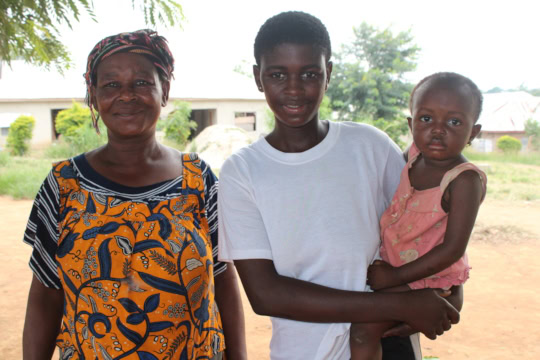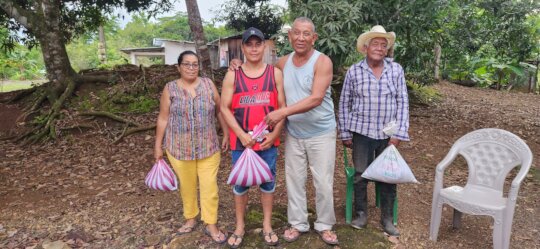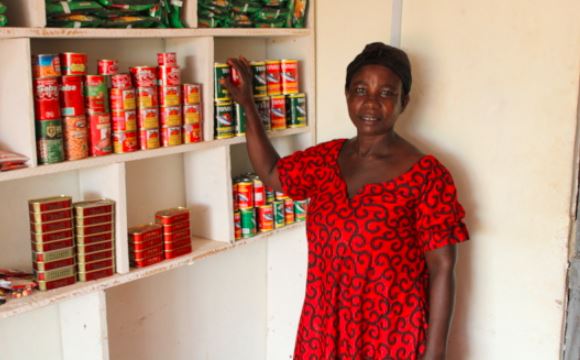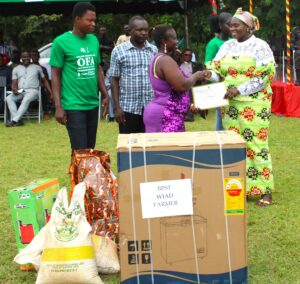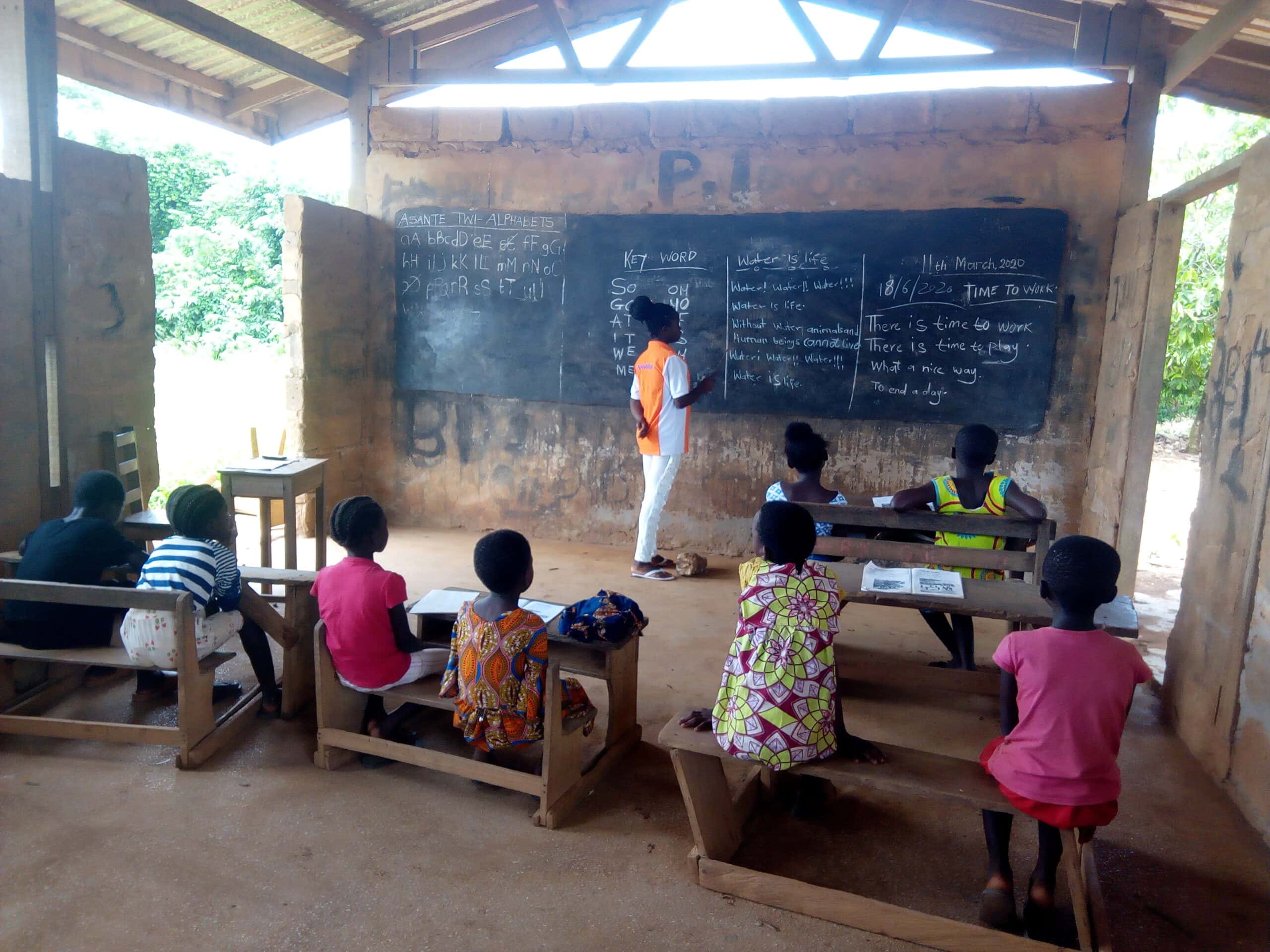
Supporting Girls in the Time of COVID-19: Peer-to-Peer Learning
This report was written by George Amo, NABCO Support Staff, and Jessica Crawford, Program Specialist for Africa. It was edited by Megan Sehr, Director of Development.
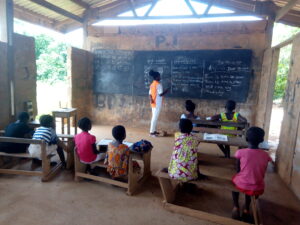
Peer-to-peer learning in action!
Self-Help International’s Teen Girls Club (TGC) program had recently revised their model to include additional time for English language tutoring. Participants had identified this as a major interest area and the school system supported the additional lessons. Self-Help partners with local teachers to offer additional time each week for TGC participants to practice their English and receive guidance from trained teachers. Self-Help’s team was seeing great success with this model and participants were very engaged.
Then, in early 2020, the COVID-19 pandemic emerged and shifted things in ways staff could not have anticipated: Ghana’s schools closed with no sign or date of re-opening; distance learning options were limited due to lack of internet and other resources; and it wasn’t safe to gather in groups and travel was restricted – and at times forbidden completely – to mitigate the spread of the virus. Self-Help’s team knew from lessons learned during previous epidemics like Ebola that girls and women often see the largest and most negative long-term impacts from school closures. Self-Help’s staff maintained communication with TGC Community Coordinators and were hearing that the girls were already feeling like they would forget all of the lessons from school.
How could Self-Help’s TGC team keep girls engaged and ready to return to school when schools did reopen?
Many of the teachers that were facilitating the reading lessons during the after-school program were not from the immediate community, so they were not available to continue tutoring. However, since all schools were closed, some Senior High School (SHS) alumni from the TGC were back in the community. Self-Help staff saw a unique opportunity to engage these young women in the solution: they could provide a leadership opportunity for SHS girls while keeping both the SHS and Junior High School (JHS) girls involved in learning.
The team developed a peer-to-peer learning system that divided TGC participants into small groups based on their class level. This both allowed the groups to follow appropriate physical distancing guidelines while also ensuring no one in the group would be left behind.
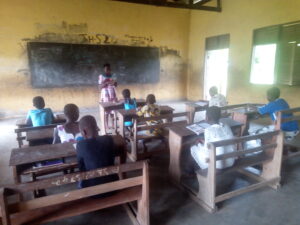
Creative solutions to keep girls engaged during COVID-19.
This model was even more successful than staff had anticipated. Self-Help staff saw SHS girls stepping up as leaders of the group, gaining confidence, and reinforcing their own learning as they taught others. The groups have also formed unique bonds among their fellow learners. Many of the girls have felt more comfortable asking questions in a group of their peers and have the opportunity to work through those challenges together instead of being provided the answers by a teacher.
Since forming these groups as tutoring teams, staff have started delivering other trainings and content for the girls such as lessons focused on goal-setting, self-esteem, and leadership. Operating in these same small groups helps to ensure girls and staff can maintain appropriate social distances while still benefiting from the program. Final year students at JHS and SHS have returned to school to take their final exams before the summer break. It’s still not known if classes will resume in the fall. Self-Help staff were so proud that all TGC participants and alumni returned to school to sit for the exams.
Situations are unpredictable and circumstances changing rapidly due to COVID-19. TGC staff don’t know exactly what the program will look like in the coming months, but they are proud of the girls as they have eagerly embraced this new, temporary model, and are excited to see how they can carry these lessons into the future.

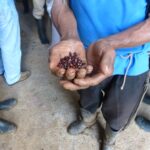 Previous Post
Previous Post Next Post
Next Post